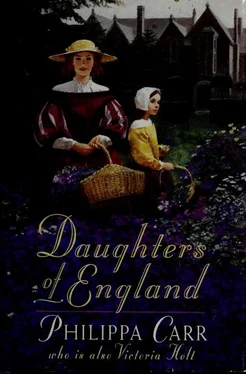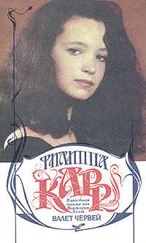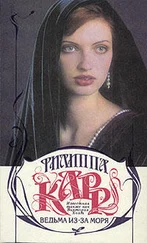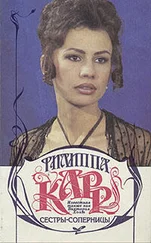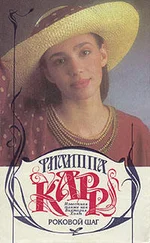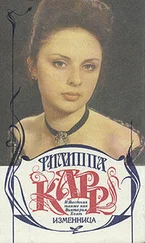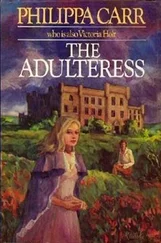Philippa Carr
Daughters of England
I FIRST SAW Kitty Carslake from the schoolroom window at Willerton House. She was walking across the lawn in the company of several young men and women. They were all laughing merrily together. It was a scene similar to others I had witnessed from the window, but this was different. Kitty was there, and she stood out among them all because she herself was different in some subtle way, which at that time I could not define. She fascinated me from that first moment, though I did not know then what an effect she was going to have on my fife.
I had often looked from that window down on a world which was very different from my own. To me it was like a peep show, a glimpse into a way of life that was colorful and glamorous, a way of life of which I should never be part, so I had to be grateful to Maria Willerton for making glimpses of it possible.
I had been born on the Wiltshire estate of Sir Henry Willerton, by whom my father was employed as managing agent, on the thirtieth day of January in the year 1649, that very day when the King's triumphant enemies had cut off his head outside the Palace in Whitehall, in the sight of those who had gathered to watch. A new way of life had begun then, for the nation discarded its frivolous ways and was subject to the rule of the Puritans.
My mother approved of this; my father less so, but he was not a man to assert himself: in any case, we had to follow the law laid down by our rulers. So, no more frivolity, no more riotous living, no more flaunting ourselves in silks and velvets. Clothes were usually a somber black, with perhaps a white collar here and there; one must be humble, sober and God-fearing. As for children, they must speak only when spoken to. In those days I was led to believe that all the angels in Heaven carried notebooks that they might record each single sin committed by the unwary. Sin lurked everywhere and it was not always easy to recognize. That was the Devil's way of luring people to commit it and thus condemn themselves to burn in Hell forevermore.
It was a dismal prospect, but that was the atmosphere in which I spent my early years.
We had a comfortable house on the estate. There was always good, if plain, food on the table, for which we gave lengthy thanks to the Almighty before partaking of it. We had prayers in the morning on rising, and in the evening before retiring, which my father conducted.
I was an only child and that could have meant a lonely existence in a Puritan household; but I was always interested in people and had made some friends on the estate.
Sir Henry and Lady Wilier ton, to whom everyone referred as "The Family," were good to us. They did not behave as though we were their servants. This may have been due to their kind hearts or to the fact that this was an age of simplicity. In any case, many of the nobility had supported the King against the Parliament, and The Family must have felt grateful to have come through the conflict with their estates and dignity intact, and had no wish to call attention to their previous importance.
My father was often at the house, discussing estate matters, but he always went as a guest and my mother sometimes accompanied him.
There was a daughter of the house, Maria; and I was invited to share her governess, which pleased my parents, as it gave me an opportunity to acquire a better education than they could otherwise have given me. Frequently I was called upon to thank God for this blessing.
It was more than lessons I learned at Willerton House. Maria was a lively companion and she liked to impress me with her wisdom, and as I was only too ready to listen, we became good friends.
Through her I learned a good deal of the world beyond Wiltshire: and the years were passing.
Oliver Cromwell had died and his son Richard had become Protector. Change showed itself in a hundred little ways. Rules became less rigid; there was a certain absence of solemnity. One heard people laugh more often. It was said that Richard was not like his father, which meant that he was not the same stern disciplinarian: he was kindly and well-meaning, but he lacked his father's strength, and a very strong man was needed to keep a race like the English in somber submission.
Maria, who was two years older than I, and never failed to remind me of that fact, said: "Something is happening. People are getting excited. There will be change."
"What change?" I asked.
"Just change. Everywhere. That is what people are saying. They would never have got it without war while Oliver Cromwell was there. But he has gone, has he not? Do you know there is talk of bringing back the King?"
I listened round-eyed. "He would not come here ... to this house," I said.
"He might. Kings go round visiting. They stay in people's houses. We should go to court, and my brother ..."
She was smiling, thinking of her brother. I had heard of him. His name was Rufus, and he was on the Continent with the exiled King. Rufus's story was very romantic. He was six years older than Maria, and she was very proud of him. When he was a boy, he had wanted to join the King's army, and at the age of sixteen he had left home and gone to France to be with the King.
Maria often talked of him.
"I remember he was always talking about the King, how he was hoping to fight to bring him back. He was so disappointed because he was too young to join the King's army. He really believed that if he had been old enough, he would never have allowed the Roundheads to win and King Charles would still be on the throne."
"And what is he doing now?" I asked her.
"I do not know. We do not talk of him. It would not be wise for people to be reminded that one of the family is now in France with the King."
It was small wonder that she was excited. I sensed Lady Willerton was too at the prospect of her son's returning in the train of the King.
"We shall go to London, you see," went on Maria. "After all.
Rufus will surely be in favor after all his loyal service. Everything will be different."
"How different?'' I wanted to know.
"Nanny Tilling likes to talk about the old days. She has no love for Oliver Cromwell, nor his son. She is all for the King. She says what right have they to say, 'Go to church every day and twice on Sundays, and never have a bit of fun.' She says this to me, of course. She is careful of the others. You never know who's listening. She says we're not free like we used to be. You have to think before you open your mouth."
She was right about change coming. It was more apparent every day.
Tired of Puritan rule, no longer held in check by the mighty Oliver, and taking advantage of the slacker rule of his son, the people had their way.
King Charles was invited to return, and on one glorious day in May of the year 1660, King Charles II landed at Dover, come to claim a kingdom which was readily given to him by a people weary of Puritan rule.
England was determined to be merry again, and without delay enthusiastically set about it.
At that time I was eleven years old.
There was a great deal of entertaining at Willerton. The family were naturally delighted by the change. So were a great many people.
We heard about the welcome which had been given to the King in London. The people had gone wild with joy, singing and dancing, drinking his health, expressing in every possible way their rejection of the old ways and rejoicing in the new ones they expected now would come.
My mother shook her head gravely. They would pay for this, if not on earth, in the life to come. Disaster had come to England. The Devil and his minions were rejoicing while God and the angels wept.
Читать дальше
